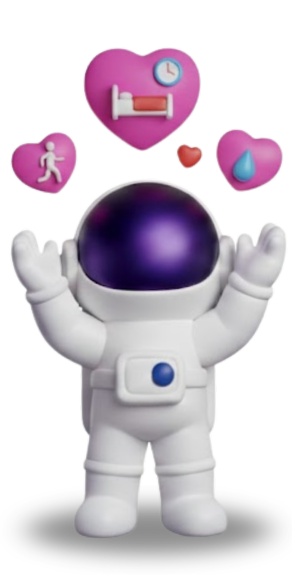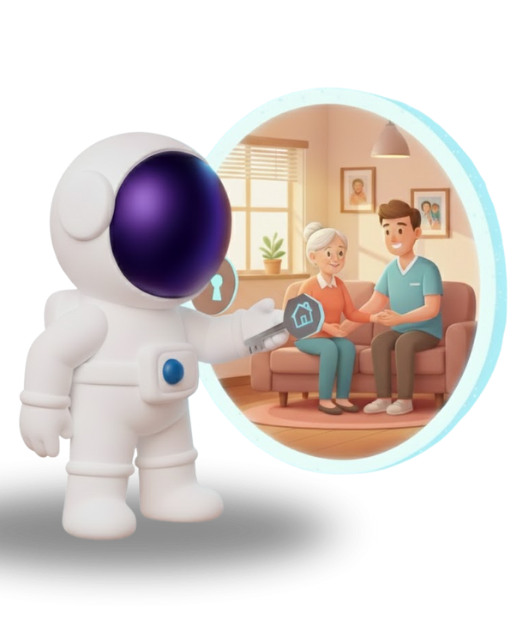OneCare AAL uses smart, discreet sensors to monitor daily routines and detect early changes in wellbeing — keeping people safe, independent, and supported.
OneCare AAL (Assisted Ambient Living) is a discreet home monitoring system designed to identify early signs of change in a person’s wellbeing.

OneCare AAL uses discreet in-home sensors to learn a person’s normal daily patterns — like movement, sleep, and hydration. When it detects unusual changes, such as reduced activity or irregular routines, it automatically sends alerts to carers or families, allowing early action before a crisis occurs.
monitor day-to-day activities such as movement, kitchen and bathroom use, and sleep patterns.
identifies subtle deviations from a person’s normal routine — for example, reduced mobility or increased inactivity.
notify families, carers, or care coordinators when wellbeing changes are detected.
OneCare AAL seamlessly integrates with OneCare SAFE to create a connected, proactive homecare system. Together, they combine behavioural insights, fall detection, and real-time alerts — helping carers act early, reduce hospital admissions, and keep people safe at home.
Data from SAFE and AAL work together to give carers and families one clear view of wellbeing — improving coordination across homecare, NHS, and community teams.
Fully compatible with Urgent Community Response (UCR) and frailty models, supporting faster, smarter interventions when early warning signs appear.

OneCare AAL (Assisted Ambient Living) is a smart, non-wearable monitoring system that uses discreet sensors to track daily routines and detect early signs of change in wellbeing — helping carers and families act before a crisis occurs.
Unlike wearable devices or panic buttons, OneCare AAL doesn’t rely on the person remembering to wear or charge anything. It uses ambient sensors around the home to detect changes automatically and send alerts when something seems unusual.
No. OneCare AAL is completely privacy-friendly. It does not record sound or video. Instead, it monitors environmental activity such as movement, sleep, and appliance use to identify behavioural patterns.
By detecting early signs of decline — such as reduced mobility, missed meals, or changes in sleep — OneCare AAL helps professionals intervene early, reducing the likelihood of falls, dehydration, or crisis events that lead to hospital visits.
Yes. OneCare AAL integrates with OneCare SAFE and can connect with local care coordination platforms, including NHS Urgent Community Response (UCR) and frailty pathways.